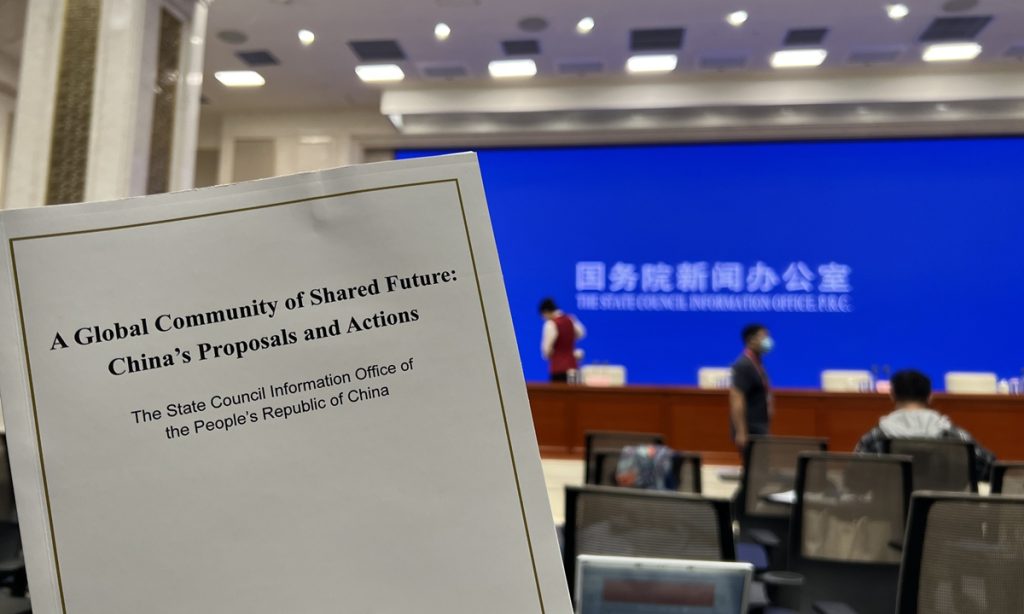China an active advocate, strong promoter and continuous contributor to global poverty reduction agenda: official

China has been an active advocate, strong promoter and continuous contributor to the global poverty reduction agenda, and has always closely linked its own development to the global common development, Zhao Fengtao, vice chairman of the China International Development Cooperation Agency, told a press briefing on Tuesday, when asked about how China is helping to alleviate poverty in third world countries.
"China has always paid attention to the development of global poverty reduction, and the [China-proposed] Global Development Initiative (GDI) also prioritizes poverty reduction among the eight areas of work," Zhao said at a press briefing of the State Council Information Office on Tuesday.
At the press briefing, China released a white paper entitled "A Global Community of Shared Future: China's Proposals and Actions." The white paper, which summarizes the meaning of building a global community of shared future, its practices and development, was released on the 10th anniversary of China's proposal of the idea.
According to Zhao, China has actively implemented demonstration projects on people's livelihoods and promoted China's experience in poverty reduction. China has helped a number of developing nations carry out 6,000 projects linked to livelihood, which have effectively elevated local sustainable development capacity, Zhao said, exemplified by the plantation of homegrown hybrid rice in 70 countries as well as the introduction of China's Juncao cultivation technology in over 100 nations.
As China's old saying goes, "If you want to be rich, first build a road," and China is playing a role in building transportation to facilitate poverty reduction in areas along the transportation link. Driving up social and economic development via boosting connectivity is a focal point of the Belt and Road Initiative (BRI), Zhao noted.
Over the past decade, the BRI has fueled nearly $1 trillion in investment and lifted 40 million people out of poverty. There are multiple highlights of the China-Pakistan Economic Corridor, while BRI project in Ethiopia also makes the country have the first expressway in East Africa.
Zhao said that China also mobilizes development resources to facilitate the global poverty reduction agenda. China has announced the upgrading of the South-South Cooperation Assistance Fund to a Global Development and South-South Cooperation Fund and the increase of its total funding to $4 billion.
Under the framework, Chinese financial institutions have set up a special fund of $10 billion for implementing the GDI, and over 200 cooperation projects have been included in the GDI project pool, according to Zhao.
China has also shared its experience of poverty reduction in the context of Chinese modernization to other developing countries through education, training and think tank communication, as teaching a man how to fish matters more. For example, the Luban Workshop has helped train new types of skilled workers in over 20 countries, according to Zhao.
Wirun Phichaiwongphakdee, director of the Thailand-China Research Center of the Belt and Road Initiative, told the Global Times on Tuesday that the implementation of the concept of building a global community of shared future has given each individual country equal rights to development, and made the developing world able to lift itself out of poverty and genuinely participate in global governance.
The white paper released on Tuesday has been published in eight languages, including Chinese, English, French, Russia, German, Spanish, Arabic and Japanese. It has three parts - a preface, main body and conclusion. The main body has five sections, including "humanity at crossroads," "an answer to the calls of the time and a blueprint for the future," "deep roots in history and cultural tradition," "direction and path," "China's action and contribution."